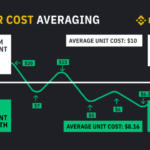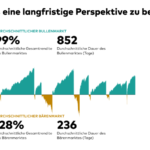Unlock Your Wealth: Mastering The Perfect Investment Strategy And Property For Financial Success!
Investment Strategy and Property: A Lucrative Combination for Financial Growth
Introduction
Investment strategy and property are two powerful forces that when combined, have the potential to generate significant financial growth. As an avid investor and property enthusiast, I have had the privilege to explore the world of real estate and witness firsthand the immense benefits it can offer. In this article, I will share my experiences and insights on investment strategies and how they can be effectively applied to the property market.
2 Picture Gallery: Unlock Your Wealth: Mastering The Perfect Investment Strategy And Property For Financial Success!


What is Investment Strategy?

Image Source: sprintfinance.com.au
Investment strategy refers to a well-thought-out plan that helps individuals or businesses make informed decisions regarding their investments with the aim of maximizing returns while minimizing risks. It involves careful analysis of various factors such as market conditions, asset allocation, diversification, and risk tolerance. A sound investment strategy serves as a roadmap to guide investors in achieving their financial goals.
Who Can Benefit from Investment Strategy and Property?
Investment strategy and property are not limited to a specific group of individuals. Anyone with a desire to grow their wealth and secure their financial future can benefit from implementing a well-planned investment strategy in the real estate market. Whether you are a seasoned investor looking for diversification or a novice exploring investment opportunities, the property market offers a plethora of options to suit different investment objectives and risk profiles.
When is the Right Time to Invest in Property?

Image Source: capitalproperties.com.au
Determining the right time to invest in property is a question that often arises in the minds of potential investors. While market conditions play a crucial role, it is important to remember that real estate is a long-term investment. The key lies in identifying emerging trends, market cycles, and considering the long-term growth potential of a particular location. Timing the market perfectly is challenging, but with a well-defined investment strategy, one can make educated decisions regardless of the current market conditions.
Where to Invest in Property?
Choosing the right location to invest in property is vital for the success of any investment strategy. Factors such as economic growth, infrastructure development, employment opportunities, and market demand should be carefully evaluated. Popular investment destinations often include major cities, emerging markets, or areas experiencing rapid urbanization. Conducting thorough research and consulting with real estate professionals can provide valuable insights into the best locations for property investment based on your investment goals.
Why Choose Property as an Investment?
Investing in property offers a multitude of advantages that make it an attractive option for investors. First and foremost, real estate is a tangible asset that provides a sense of security. Properties have the potential to appreciate in value over time, generating substantial capital gains. Additionally, rental income from properties can provide a steady cash flow, acting as a passive income stream. Moreover, property investments offer tax benefits and serve as a hedge against inflation. Overall, property investment provides a combination of wealth preservation, appreciation, and income generation.
How to Develop an Investment Strategy for Property?
Developing an effective investment strategy for property requires a systematic approach. Here are some key steps to consider:
Set investment goals: Clearly define your investment objectives, whether it is long-term wealth creation, regular income, or diversification.
Assess your risk tolerance: Understand your risk appetite and choose investment options accordingly.
Conduct market research: Analyze market trends, demand-supply dynamics, and economic indicators to identify potential investment opportunities.
Define investment criteria: Determine the type of property, location, and budget that align with your investment goals.
Formulate a financial plan: Create a comprehensive budget, taking into account acquisition costs, ongoing expenses, and potential returns.
Diversify your portfolio: Spread your investment across different properties or regions to minimize risk and maximize returns.
Monitor and adapt: Regularly review your investment performance, stay updated with market trends, and make necessary adjustments to your strategy.
Frequently Asked Questions (FAQ) about Investment Strategy and Property
Q: Is property investment suitable for everyone?
A: Property investment is suitable for individuals with a long-term investment horizon and a willingness to manage the associated responsibilities. It may not be suitable for those seeking quick returns or lacking the financial means to sustain property ownership.
Q: How much capital is required to invest in property?
A: The amount of capital required to invest in property depends on various factors such as the location, property type, and financing options. It is advisable to have a substantial down payment and a financial buffer to cover additional costs.
Q: What are the risks associated with property investment?
A: Risks in property investment include changes in market conditions, economic downturns, property depreciation, tenant-related issues, and unexpected expenses. Conducting thorough due diligence and having a contingency plan can help mitigate these risks.
Q: Should I invest in residential or commercial properties?
A: The choice between residential and commercial properties depends on your investment goals, risk tolerance, and market conditions. Residential properties generally offer stable rental income, while commercial properties have the potential for higher returns but may involve higher risk.
Conclusion
Investment strategy and property are a winning combination for individuals seeking to create wealth and secure their financial future. By implementing a well-defined investment strategy, one can navigate the property market with confidence and capitalize on its lucrative opportunities. However, it is essential to remember that investment decisions should be based on thorough research, careful analysis, and a clear understanding of one’s financial goals and risk tolerance. With the right strategy and a long-term perspective, property investment can be a rewarding journey towards financial prosperity.
This post topic: Personal Finance


